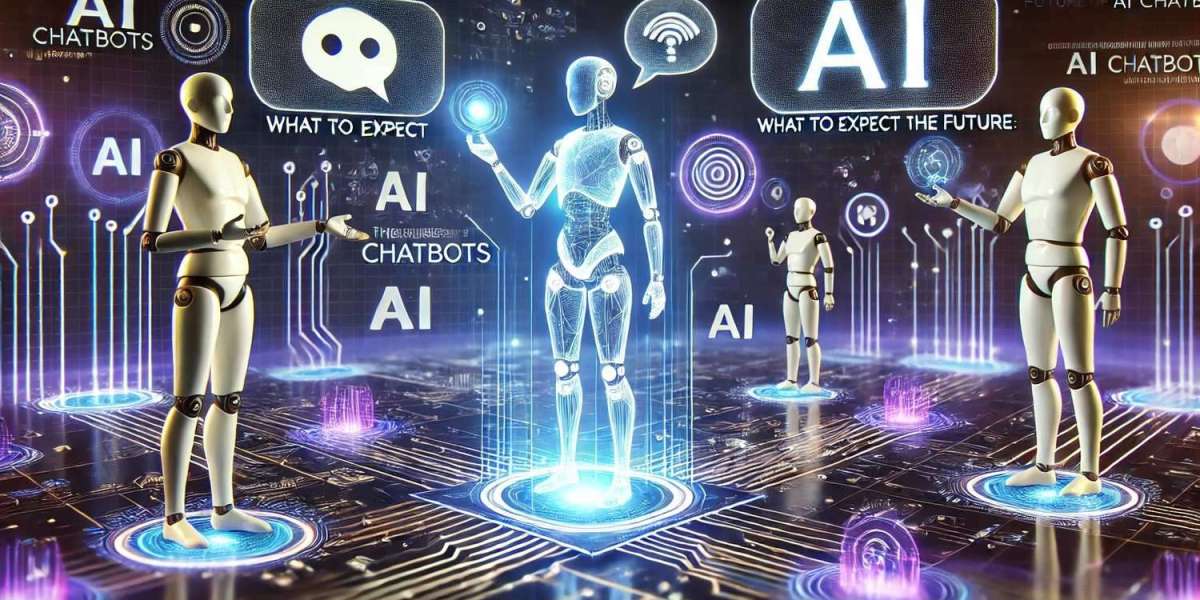In recent years, AI chatbots have become a critical tool in transforming customer service. With the rise of artificial intelligence, businesses are increasingly relying on chatbots to provide quick, efficient, and personalized service. These intelligent systems are designed to understand human language, process requests, and provide solutions in real time, all while offering a more cost-effective alternative to traditional customer service methods.
AI chatbots have been particularly impactful in the context of customer service because they can operate 24/7, handle multiple inquiries simultaneously, and improve the overall customer experience. Whether it’s assisting customers with issues, answering FAQs, or offering product recommendations, AI chatbots are continuously improving the way businesses interact with their customers.
The Evolution of Customer Service Through AI
The role of AI in customer service is growing rapidly. Initially, customer service was a manual, person-to-person operation. Over time, businesses began to adopt telephone-based customer service, followed by automated phone systems. Now, AI chatbots are taking things a step further by handling customer inquiries via online chat, social media platforms, and mobile apps.
These advancements not only help streamline communication but also offer businesses the ability to deliver faster and more accurate responses to their customers.
In fact, the benefits of chatbots have become so clear that more companies are adopting them across various sectors, from retail to healthcare, tech support, and even entertainment.
How Do AI Chatbots Work?
AI chatbots are powered by sophisticated machine learning algorithms and natural language processing (NLP). These technologies enable chatbots to analyze and understand the language of customers. The bots use this information to provide the most relevant answers or solutions.
The process starts with training the chatbot on vast datasets, including common customer queries, issues, and support tickets. The more data it processes, the better it gets at understanding context and nuance. Consequently, AI chatbots can handle a wide range of requests, from simple questions to more complex inquiries that require a detailed response.
Additionally, AI chatbots can be integrated with other tools like CRMs, payment systems, and databases. This helps them provide a more personalized service by accessing customer profiles, transaction history, and even predictive analytics.
The Benefits of Chatbots in Customer Service
There are several key benefits of chatbots that are driving their adoption in customer service roles. Let's explore how AI chatbots are improving customer service and why businesses are increasingly turning to them.
1. 24/7 Availability
One of the most notable advantages of AI chatbots is their ability to provide round-the-clock service. Unlike human agents, AI chatbots don’t need breaks, sleep, or holidays. They can provide assistance at any time of the day or night, helping customers in different time zones or those who prefer late-night inquiries.
This is particularly beneficial for businesses that operate globally. Not only does it reduce customer wait times, but it also ensures a consistent experience for users, no matter when they reach out.
2. Cost-Effectiveness
AI chatbots significantly reduce operational costs. Since they can handle multiple customer inquiries simultaneously, companies don’t need to hire as many customer service agents. This can save businesses money, especially when dealing with high volumes of inquiries.
Furthermore, chatbots can automate many repetitive tasks that would otherwise require human intervention. For example, they can respond to common queries such as checking order status, resetting passwords, or providing business hours. This helps free up human agents to focus on more complex issues that require human empathy and problem-solving skills.
3. Faster Response Time
Another benefit of chatbots is that they can provide immediate responses to customer inquiries. Waiting on hold or receiving a delayed email response can frustrate customers, but chatbots eliminate these issues by responding instantly.
This speed improves customer satisfaction and encourages a more positive experience. In comparison to traditional customer service channels, AI chatbots are far quicker in resolving issues or providing the information a customer needs. Additionally, chatbots can provide real-time updates, like confirming appointments, shipping statuses, or product availability.
4. Personalized Customer Experience
AI chatbots are also capable of providing personalized interactions, which enhance the overall customer experience. By analyzing previous interactions, customer preferences, and even social media activity, chatbots can tailor responses that meet each customer’s unique needs. This personalization fosters a connection between the brand and the customer, making it more likely that customers will return or recommend the service.
For example, an AI chatbot on a Sexting Companion Website could use prior conversations to tailor its responses based on the user's preferences, mood, and desired engagement level. Similarly, a chatbot that assists a customer with an online shopping experience might recommend products based on past purchases, search history, or browsing behavior.
5. Handling Complex Queries
Though chatbots are often associated with handling simple questions, they are becoming more adept at managing complex issues as well. With advances in natural language processing (NLP), chatbots can understand and respond to more nuanced and multi-part queries.
In addition, some chatbots are integrated with AI-powered systems that can learn over time. They continuously improve as they interact with customers, meaning that they get better at handling complex requests and providing more accurate answers as their experience grows.
6. Increased Customer Engagement
AI chatbots can also increase customer engagement by initiating conversations with users. For example, they might proactively ask if the customer needs help or offer a discount on products they’ve been browsing. This level of engagement not only improves customer satisfaction but can also lead to higher conversion rates and increased sales.
Moreover, AI chatbots can integrate with marketing strategies to provide personalized offers and promotions, such as recommending a discount on a customer's next purchase or sending reminders about abandoned shopping carts.
Real-Life Applications of AI Chatbots
Let’s look at some real-world examples where AI chatbots are being successfully used to improve customer service.
AI Chatbots in Retail
Retailers are increasingly using chatbots to improve their online shopping experience. AI chatbots can answer product-related questions, provide sizing or stock information, assist with order placement, and even guide customers through the checkout process.
For instance, AI Marketing techniques in the retail industry focus on creating chatbots that can deliver personalized marketing messages. These bots understand customer behaviors and preferences, tailoring their suggestions and content accordingly.
AI Chatbots in Healthcare
In healthcare, AI chatbots help answer patient questions, schedule appointments, and provide pre-consultation support. They can also assist in managing follow-up appointments or provide medication reminders. This reduces the workload of healthcare professionals, allowing them to focus on more urgent patient needs.
AI Chatbots in Finance
In the finance industry, AI chatbots are improving customer service by providing account information, processing payments, and offering personalized financial advice. Many banks now use chatbots for customer inquiries, allowing customers to quickly access account balances, check transaction history, or transfer funds between accounts.
AI Chatbots in Hospitality
In the hospitality industry, AI chatbots are helping customers book hotel rooms, check in, and even provide concierge services. These bots are able to offer quick and accurate recommendations based on customer preferences, such as booking a restaurant or arranging transportation.
What Does the Future Hold for AI Chatbots?
As artificial intelligence continues to evolve, the role of AI chatbots in customer service will only grow. Future chatbots will be able to handle more advanced tasks, such as making purchase recommendations based on real-time data or interpreting voice commands. Additionally, advancements in AI NSFW Character Creator technologies may even make these bots more interactive and realistic in specialized fields, such as adult content platforms.
Conclusion
AI chatbots are revolutionizing the way businesses provide customer service. From offering 24/7 availability to reducing operational costs and personalizing interactions, AI chatbots bring numerous advantages to the table. They help businesses stay competitive while improving the overall customer experience.
By addressing simple queries, offering personalized recommendations, and assisting with complex tasks, chatbots are becoming indispensable in modern customer service. As AI technology continues to improve, we can expect even more sophisticated and capable chatbots that provide an even better service to customers.
In particular, platforms like a Sexting Companion Website or retail sites that incorporate AI chatbots are already experiencing significant improvements in customer interaction. So, as AI continues to evolve, businesses will need to adapt to these changes, taking full advantage of the benefits that AI chatbots provide.







